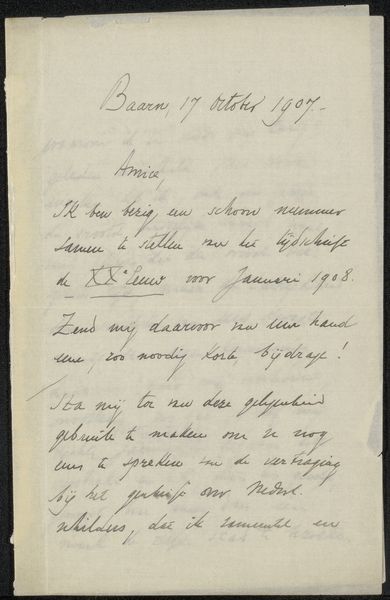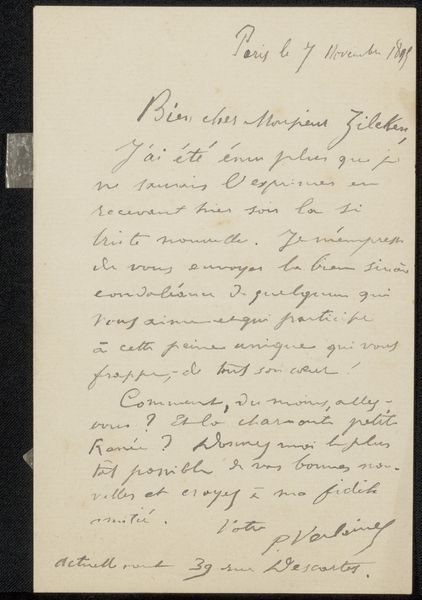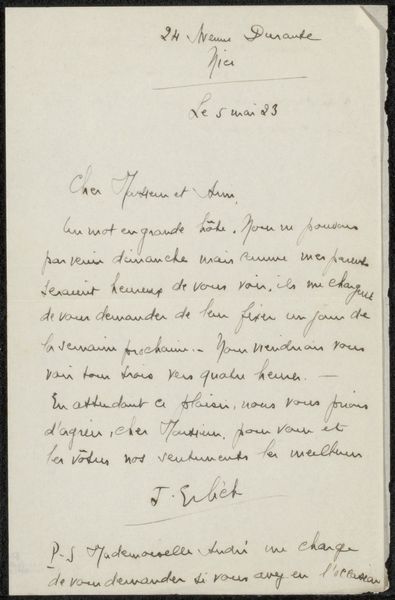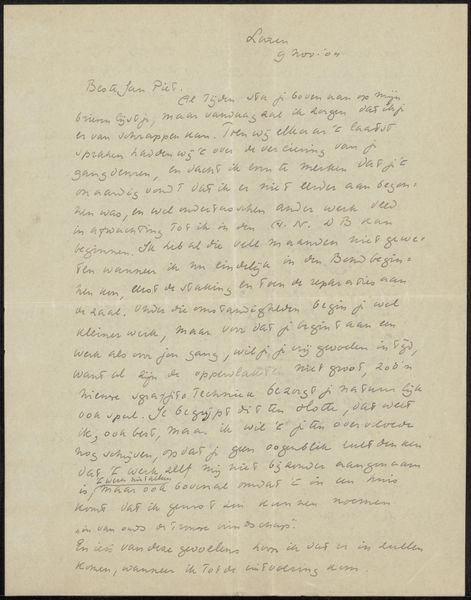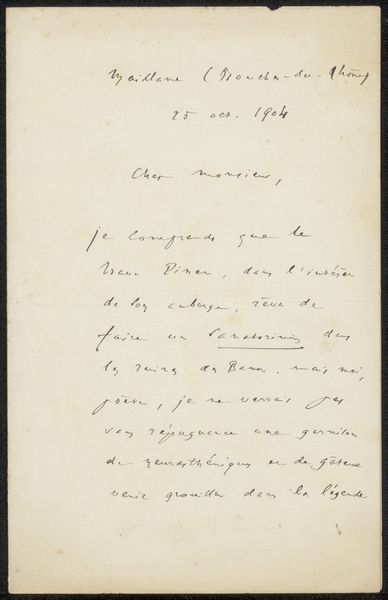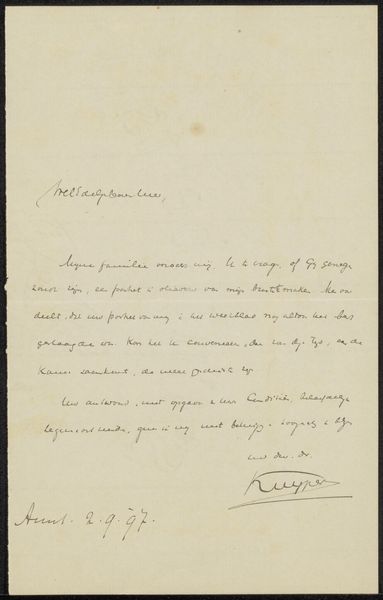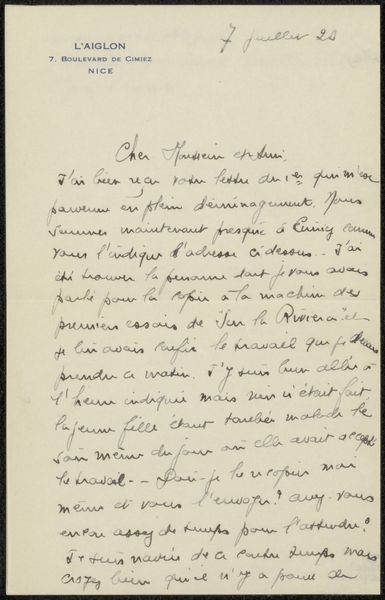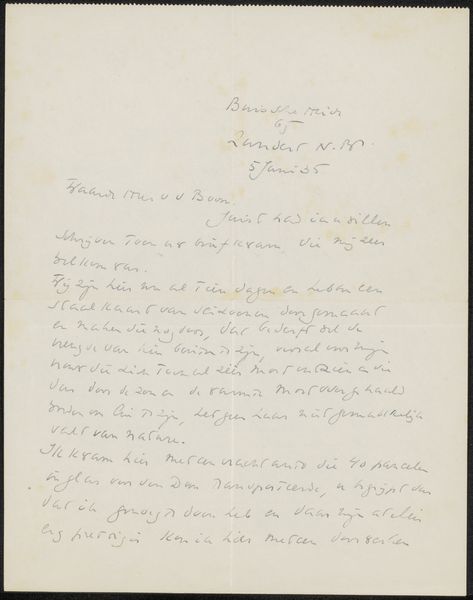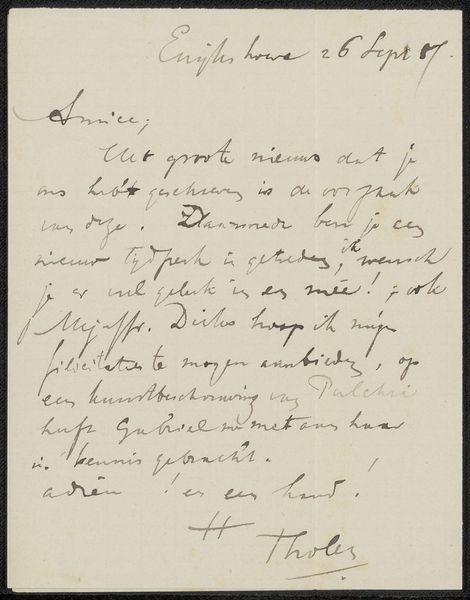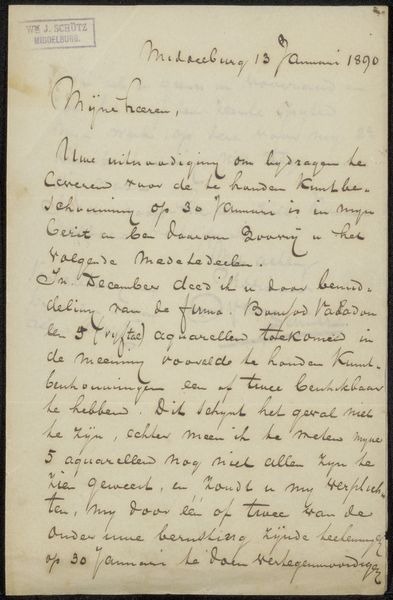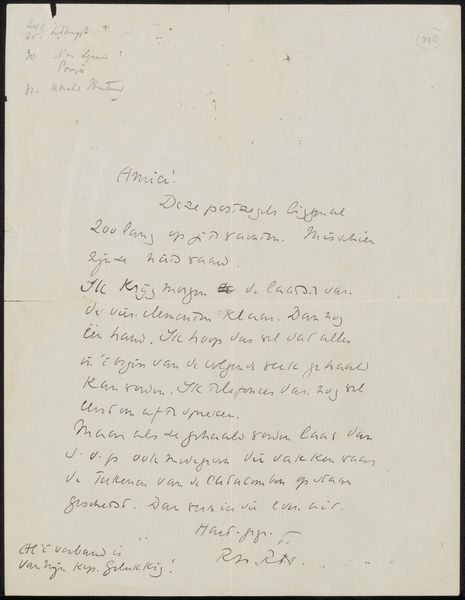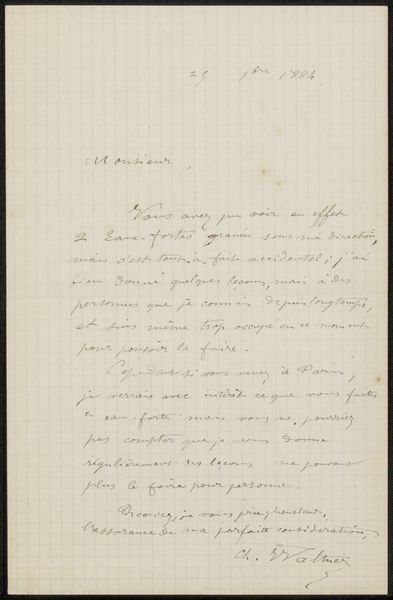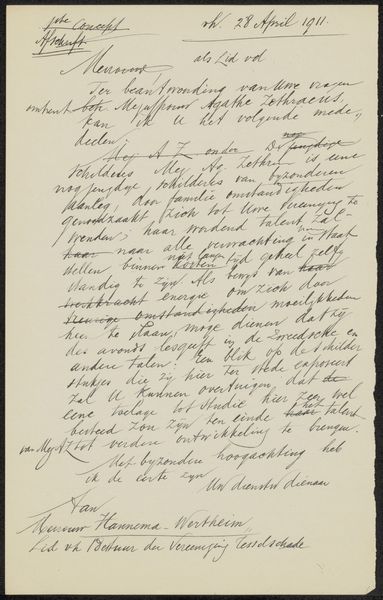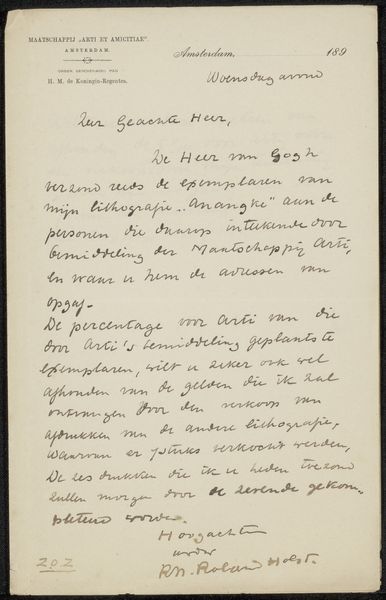
drawing, paper, ink
#
drawing
#
paper
#
ink
#
watercolor
Copyright: Rijks Museum: Open Domain
Curator: Here we have a letter, penned before 1893 by André Antoine, entitled "Brief aan Philip Zilcken." It's crafted with ink on paper, and there are indications of watercolor. It is curious indeed. What's catching your eye initially? Editor: The handwriting gives it such intimacy. It feels immediate, a snapshot of a conversation rather than a posed pronouncement. But the formal letterhead also implies that there's some official function. A moment captured with precision and intention, even the letter's decay on this yellowed surface makes this somehow powerful. Curator: That is very perceptive. Antoine, known for his revolutionary approach to theatre direction, seems to be corresponding with Zilcken, likely discussing the possibility of bringing his Théâtre Libre to Holland. Consider the significance – Antoine was shaking up the very foundations of French theatre. Editor: Yes, he challenged the accepted codes for realism. Seeing his theater's ambition toward societal representation – perhaps also social reform - through even this fragment of communication brings new consideration about the use of art, especially in an era on the cusp of so much cultural, societal shift. Curator: Exactly. This seemingly simple note speaks volumes about Antoine’s ambition to extend his influence internationally. The Théâtre Libre wasn’t just a place for performance; it was a political project, pushing for a new kind of dramatic expression. We learn of tentative plans for performance in Brussels and The Hague, revealing how meticulously Antoine pursued his vision on foreign soil. Editor: There's also a subtext of struggle. "Due to different circumstances" the plan has been set back. The reference to "different circumstances" tells a different tale. The letter is not simply a statement of artistic will, but a testament to the difficulties and persistence necessary to promote radical art, especially to the masses. The theater in constant dialog with power and institutions, both capable of building but often resistant. Curator: A wonderful point! This shows that a brief note such as this can reflect complex power structures present at the close of the century. And perhaps Zilcken was also dealing with such circumstances himself, in a different geography. This gives dimension to the purpose of the letter. It is a simple reflection about a time and a movement now past. Editor: A shared connection through the artistic lens indeed provides us with so many considerations.
Comments
No comments
Be the first to comment and join the conversation on the ultimate creative platform.
